Thanks for your support! If you make a purchase using our links in this article, we may make a commission. And, as an Amazon Associate, I earn from qualifying purchases. See the full disclosure here.
RV covers can be a great investment, particularly if you are looking to increase the functional life of your RV. Many RV owners who cover their rigs swear that a cover is the best investment.
However, other owners complain that RV covers have caused mold and damage. So which is correct?
When it comes to buying and using RV covers, you need to be mindful of how and when you cover your RV. A properly installed RV cover is a huge benefit. An improperly installed RV cover can be damaging and a burden to your maintenance activities.
In this article, we will take a look at how to properly use RV covers. We will share tips and tricks that will make an RV cover a benefit, not a burden. And we will share how to avoid problems like RV covers causing mold or damaging your RV paint.
What Is An RV Cover?
RV covers are not an accessory unique to the RV or motorhome industry. In most instances, RV covers are just like the covers that you purchase for your car.
They are intended to protect your vehicle or RV from the elements. Particularly from UV rays that can damage paint or cause seals to dry and crack.
One of the most frequent misunderstandings of RV covers is that RV covers are only needed when winterizing your RV. While they are great for this purpose, they are much more versatile.
When we mention that they protect your RV from the elements, we really mean all the elements. Sure, RV covers will insulate against snow, but they also work great for protecting the sun, rain, and wind.
All these weather elements can have negative impacts on the condition of your RV. Using an RV cover will keep the weather from slowly eating away at your RV.
Do You Really Need An RV Cover?
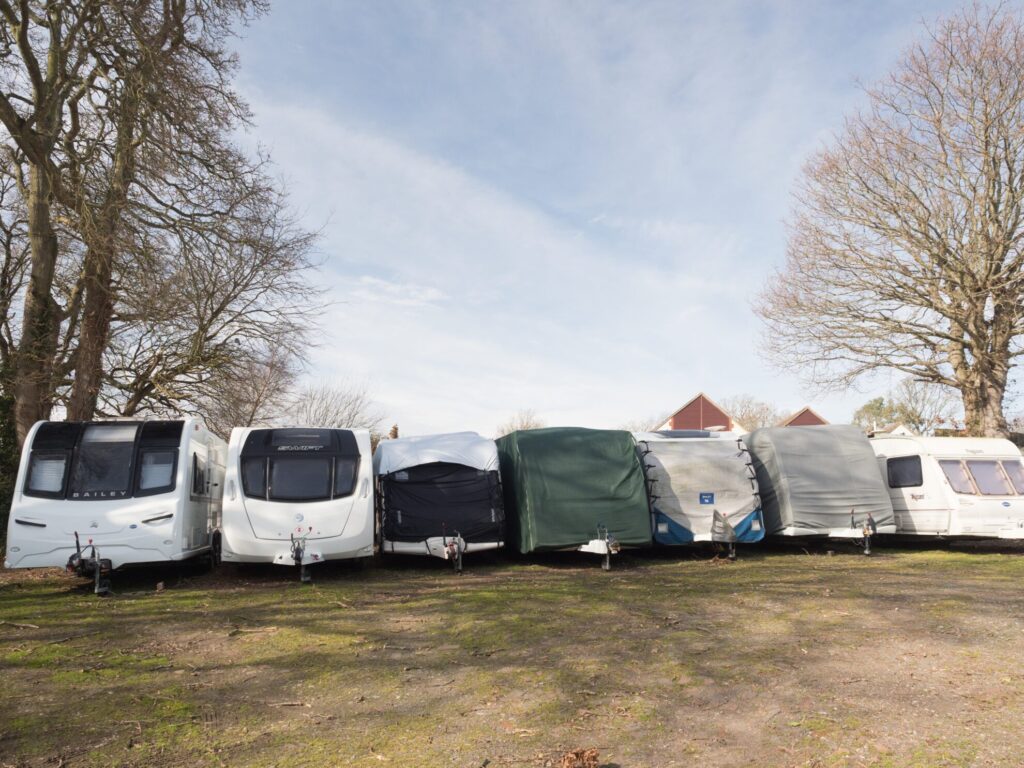
Not every RV owner needs to invest in a cover. However, there are times when you will want to consider adding an RV cover to your maintenance routine.
Your RV is a large financial investment. Making sure that it is stored or winterized properly is a must for protecting its value.
If you do not have covered storage for your RV a cover can be huge. Perhaps you do not have a covered storage facility available or maybe the option is outside of your budget.
Either way, RV covers can be a great alternative, at a substantially lower cost than covered RV storage. They are also a good option if you just do not have storage facilities in your area.
If you are anticipating that your RV will have to sit for an extended period of time, a cover should be considered. The elements are hard on a moving RV, but they are even harder on a sitting rig.
Whether an extended period of time means a few months or a few years, RV covers will provide adequate protection to keep your RV in good traveling condition.
Many people will use RV tire covers to protect their tires but allow the roof and the rest of the exterior of their RV to be exposed. It’s important to note most RV covers don’t cover the tires so combining the two is a good idea.
What Are RV Covers Made Out Of?
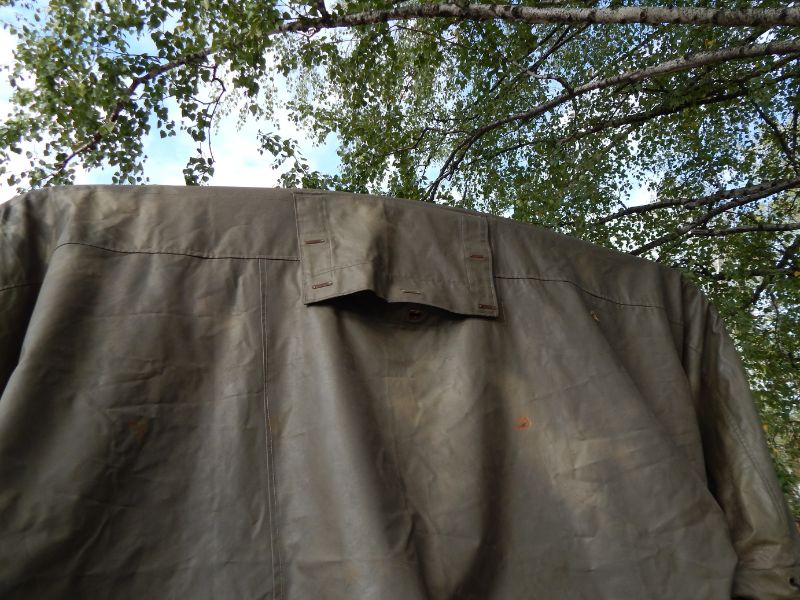
When you are shopping for RV covers you will find that they are most frequently made from two materials. Polypropylene and polyester will be the two names you see most frequently when shopping.
While both materials are sufficient for protecting your RV from the elements, there are some differences that you should be aware of.
If you are on a budget, you are likely going to be purchasing a cover made from polyester. Keep in mind that the polyester that RV covers are made from is not the same as the polyester that your favorite disco pants are made of. It has a different weave pattern and yarn size.
Polyester RV covers are stronger and made to be sturdier than polyester used in clothing. Many polyester RV covers come with a water-resistant coating that helps to protect your RV from rain, snow, frost, and humidity. This coating can reduce the breathability and durability of a polyester RV cover.
Polypropylene covers are designed to be sturdier than polyester and tend to be more resistant to the elements. The biggest and most obvious difference you will note with a polypropylene cover is the price.
These RV covers are typically more resistant to tears and tend to be more water resistant. Additionally, the way the polypropylene is structured, covers made from this material are weather resistant but at the same time breathable.
Because a polypropylene cover is designed to last longer, you will pay more for these covers. This could be a fairly large investment that people may question. This is especially true if you have a larger travel trailer or motorhome.
Do RV Covers Cause Mold?
Some RV owners complain that their RV cover caused mold. This may seem to be a good reason to skip investing in an RV cover. However, as with many maintenance complaints, there are frequent user errors behind problems.
The best way to prevent your RV cover from causing mold is to purchase a good-quality product. This isn’t necessarily the most expensive cover. Just make sure that you take time to read reviews and do some research before hitting the purchase button.
Buying a good quality product does not always translate well to the climate where your RV is stored. It is very important to invest in a cover made from a breathable material. If you will be storing your RV in a place with high humidity, breathability will be key.
If you are storing it in a humid climate, you will want a polypropylene or other breathable material. However, a breathable material is not necessarily going to be a fix-all for molding in humid environments.
For extra protection, make sure that your RV cover is not only breathable but that it also has vents. Vents allow air to draw out humidity and dry the material faster after precipitation events.
Should You Cover An RV With A Tarp?
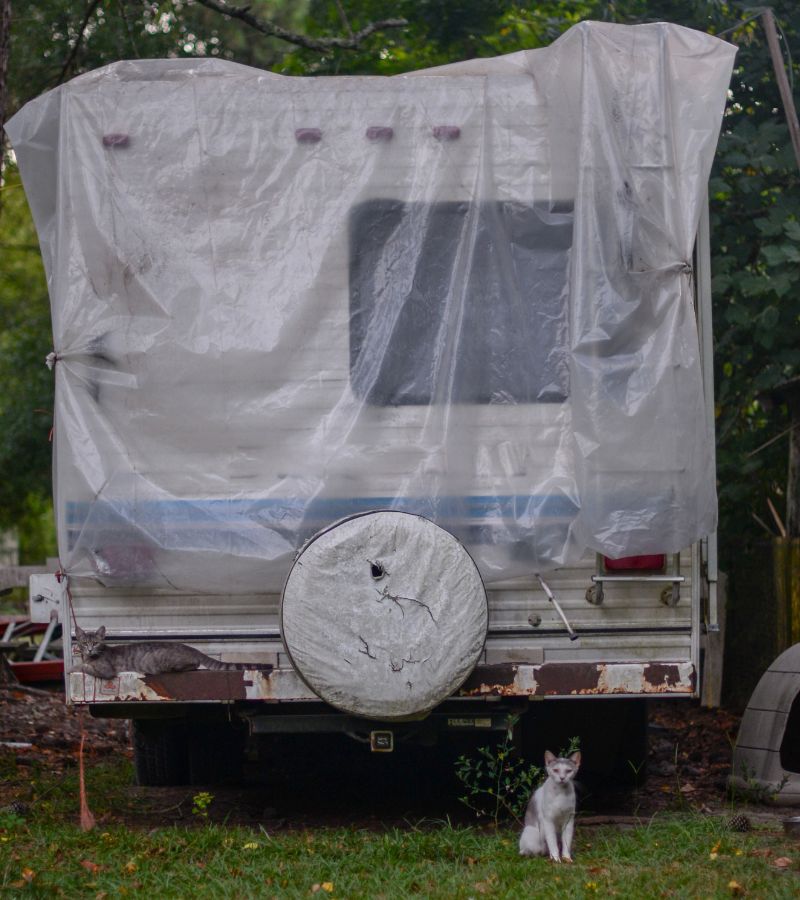
One thing you should never do is cover your RV with a tarp. Tarps are not breathable, and they are not made to protect the paint of your RV. They are fairly water resistant, but they are rough.
So, while you are protecting your RV from rain with a tarp, when the wind blows, the tarp will slowly rub away at your RV paint job. Damaging the paint finish of your RV can lead to other problems that you will not want to deal with.
If you have a roof leak or broken window, a tarp is a great temporary fix. However, as a permanent cover, it could cause more problems than it prevents.
What Size RV Cover Do I Need?
When you are shopping for RV covers, the first thing you need to do is measure your rig. Length, width, and height are all important numbers. You will use this information to find the proper-sized cover for your RV.
Most RV covers come in generalized sizes. For example, you frequently will find that covers will be made to fit RVs in a range of lengths. If you have a 23-foot RV, the best option may be a cover that fits RVs between 20 and 24 feet long.
If you measure properly, the generalized size range will be right for most RVs. It is important to ensure that you are not buying a cover that is too large. RV covers that are too big can cause problems for your RV as well.
In windy conditions, an overly large cover can rub on the exterior features of your RV. Damage to paint and exterior edges is inevitable when combined with a shifting tarp. Too much movement can also cause your RV cover to tear or fray.
On the other hand, an RV cover that is too small will be a pain to install and remove. It is also more likely to tear at the seams and on corners.
How Much Are RV Covers?
RV covers come in a wide range of prices. The price you will pay for an RV cover will depend on multiple factors. The size of your RV, the material the cover is made from, and any extra accessories will determine the cost.
Typically, RV covers range from a bit over $100 to $1000 or more. The important thing to remember is to make sure that you invest in one that is breathable, has vents, and is as easy as possible to install.
If your RV cover is complicated or difficult to put on, you may be tempted to skip using the cover at all.
In our experience, a good practice is to skip the least expensive product and the most expensive product. While the theory of “you get what you pay for” applies to inexpensive covers, the opposite is true with many expensive covers. You may pay a premium for a brand name or a “fancy” feature, that really is not as good necessary.
To get the most for your money, read reviews, measure appropriately, and invest in quality materials. This will ensure that you avoid a poorly made product or one that costs more than it is worth.
Final Thoughts on RV Covers
RV covers are a great investment for RV owners to make. These helpful tools are an easy way to protect your rig when it is in storage or when you have winterized it for the year.
Finding the right cover for your RV does require a bit of research and time. However, the right RV covers will fit your RV well and will provide optimal protection against the elements.
When you have spent a good amount of money on an RV you want to do everything you can to protect it. Investing in a good quality RV cover is an easy way to increase the longevity of your RV as well as the happy memories that you will make when traveling.
Related Reading:
– The Pros And Cons Of RV Or Camper Covers
– Indoor Versus Outdoor RV Storage Facilities
– 10 Best RV Windshield Covers Reviewed
– 6 Best Portable RV Garage And Shelter Kits
Jason Gass – Author and Part Time RVer
Jason Gass is a full-time freelance writer and part-time RVer whose goal is to share great stories around a campfire with good friends.
When he’s not working, he spends most of his time camping, searching for the best breweries, and road-tripping in his teardrop trailer with his wife, daughter, and two dogs.
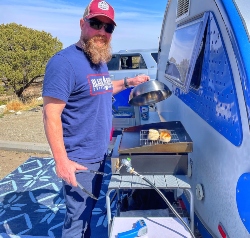

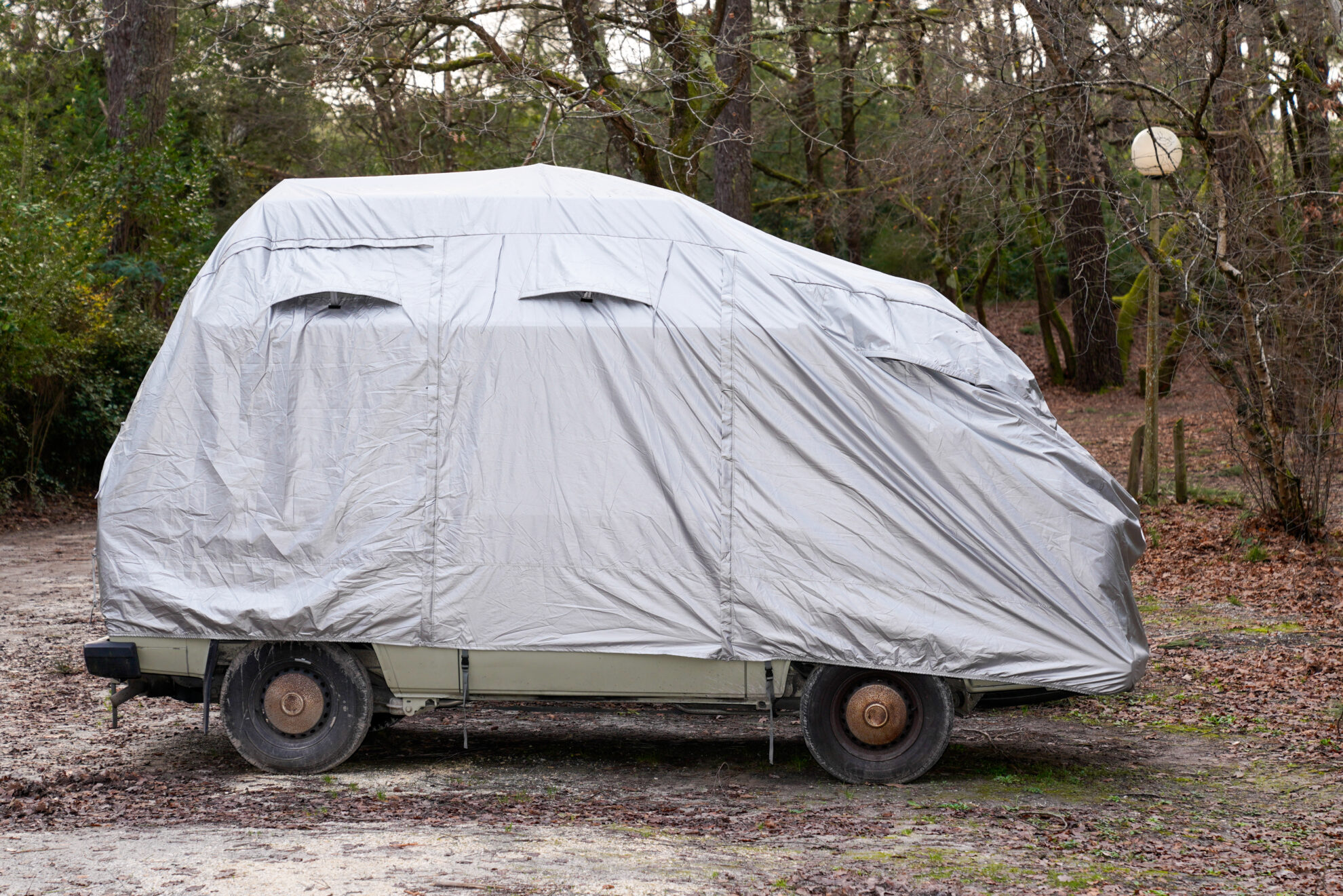
We have an ADCO RV cover for our 18’ Wolf Pup Forest River trailer. I use it now to keep sticky stuff from our Cottonwood tree sticking to it in the spring. It is breathable and we live in Minneapolis. Should we cover the trailer in the winter? Concern is mold. Thx.
I cover our trailer but I also use plenty of those moisture gathering bags throughout. They really collect a lot of water when freeze gives way to thaw.